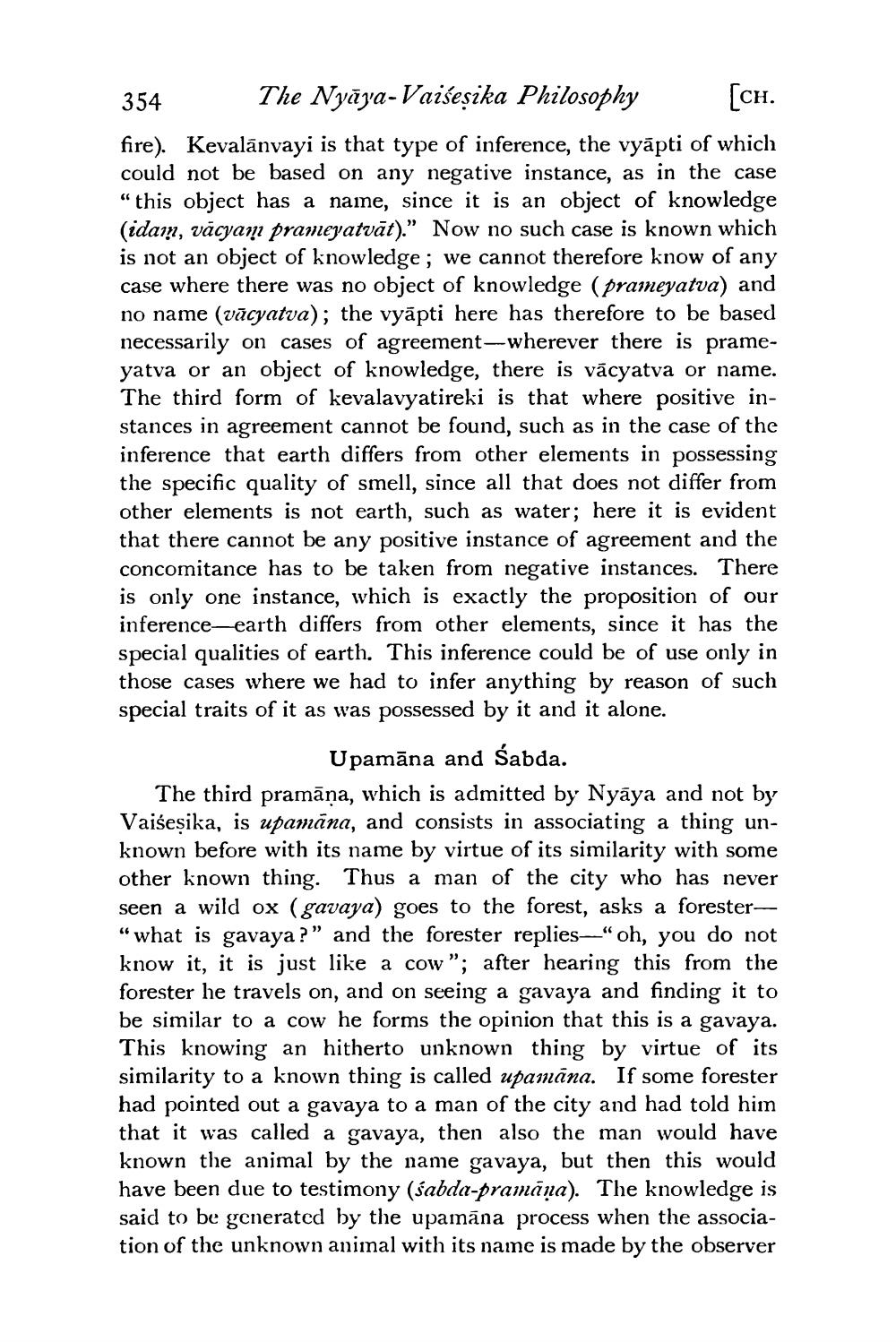________________
354
The Nyaya-Vaiseṣika Philosophy
[CH.
fire). Kevalanvayi is that type of inference, the vyapti of which could not be based on any negative instance, as in the case "this object has a name, since it is an object of knowledge (idam, vācyam prameyatvāt)." Now no such case is known which is not an object of knowledge; we cannot therefore know of any case where there was no object of knowledge (prameyatva) and no name (vācyatva); the vyāpti here has therefore to be based necessarily on cases of agreement-wherever there is prameyatva or an object of knowledge, there is vācyatva or name. The third form of kevalavyatireki is that where positive instances in agreement cannot be found, such as in the case of the inference that earth differs from other elements in possessing the specific quality of smell, since all that does not differ from other elements is not earth, such as water; here it is evident that there cannot be any positive instance of agreement and the concomitance has to be taken from negative instances. There is only one instance, which is exactly the proposition of our inference-earth differs from other elements, since it has the special qualities of earth. This inference could be of use only in those cases where we had to infer anything by reason of such special traits of it as was possessed by it and it alone.
Upamāna and Sabda.
The third pramāṇa, which is admitted by Nyaya and not by Vaiseṣika, is upamāna, and consists in associating a thing unknown before with its name by virtue of its similarity with some other known thing. Thus a man of the city who has never seen a wild ox (gavaya) goes to the forest, asks a forester"what is gavaya?" and the forester replies "oh, you do not know it, it is just like a cow"; after hearing this from the forester he travels on, and on seeing a gavaya and finding it to be similar to a cow he forms the opinion that this is a gavaya. This knowing an hitherto unknown thing by virtue of its similarity to a known thing is called upamana. If some forester had pointed out a gavaya to a man of the city and had told him that it was called a gavaya, then also the man would have known the animal by the name gavaya, but then this would have been due to testimony (śabda-pramāņa). The knowledge is said to be generated by the upamana process when the association of the unknown animal with its name is made by the observer




